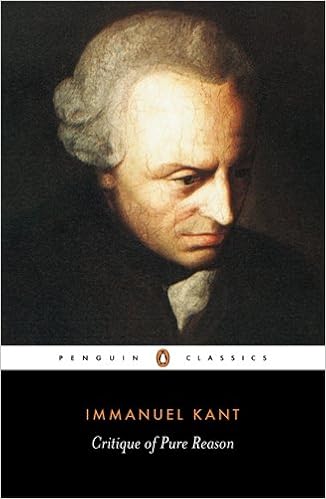Critique of Pure Reason, by Immanuel Kant
 Critique of Pure Reason, by Immanuel Kant is a very interesting book, to say the least. In this book, Kant attempts to test the limits of pure reason, to see how much we can explain about the world using reason alone. Kant claims that there are two types of knowledge: a posteriori knowledge and a priori knowledge. A posteriori knowledge is knowledge gained from experience, and a priori knowledge is knowledge we have independent of experience. He also thinks that what we consider to be reality is just our mind's perception of our universe.
Critique of Pure Reason, by Immanuel Kant is a very interesting book, to say the least. In this book, Kant attempts to test the limits of pure reason, to see how much we can explain about the world using reason alone. Kant claims that there are two types of knowledge: a posteriori knowledge and a priori knowledge. A posteriori knowledge is knowledge gained from experience, and a priori knowledge is knowledge we have independent of experience. He also thinks that what we consider to be reality is just our mind's perception of our universe.
I thought this book was ok. Philosophy and metaphysics are two things that I am able to read and be absorbed by it very well. It's very interesting just to question the nature of the universe and the things that make up the universe. However, one thing that I did not like about this book is that Kant uses a bunch of complex jargon, which really irritates me whenever someone does that. Einstein said that whenever you explain something, you should explain as simple as it needs to be, and no simpler, and I agree.
Reviewed by A.E., Grade 9
Casa Verdugo Library


Comments